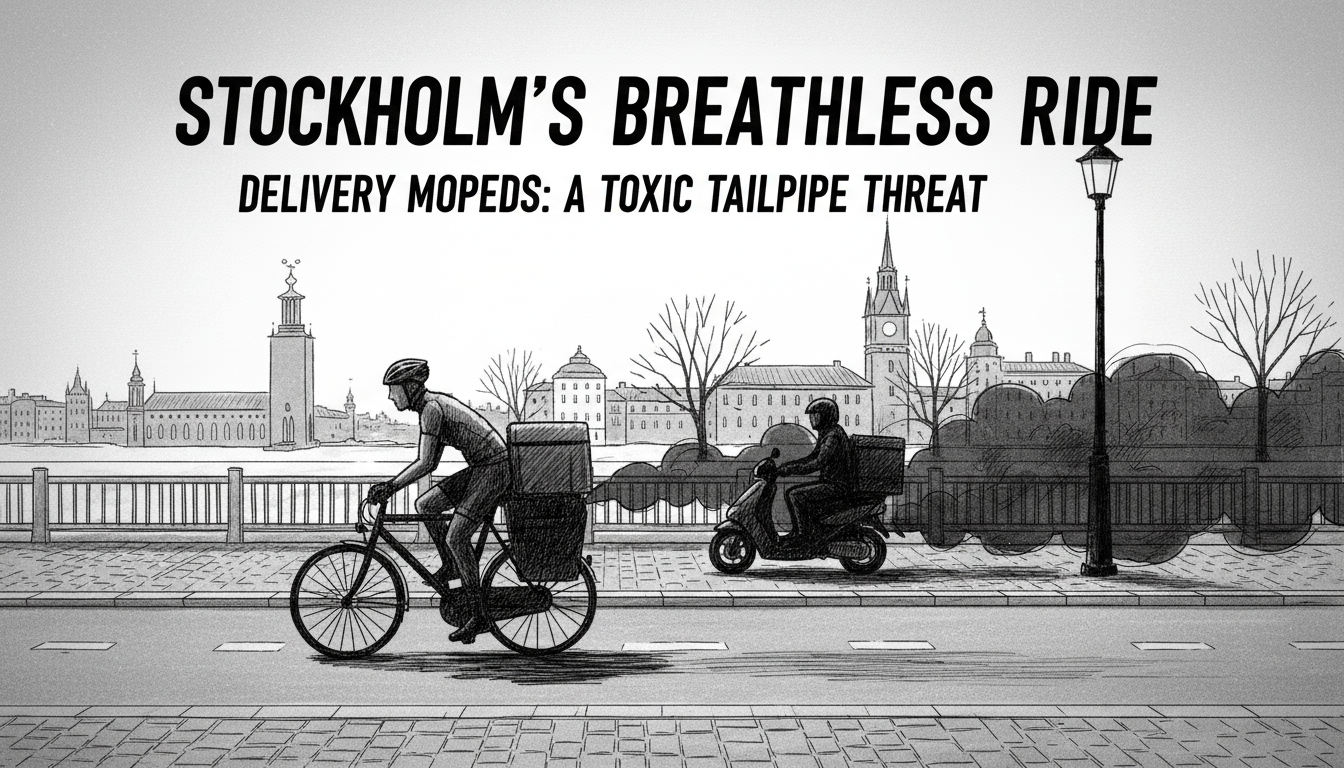Food delivery mopeds from services like Foodora, Wolt and Uber Eats present serious health risks to people nearby. This warning comes from approximately twenty medical doctors in Stockholm.
Gregory Palega, a specialist in internal medicine at Karolinska University Hospital, leads the concern. He states these vehicles threaten public health through their emissions and close proximity to pedestrians.
The distance between the vehicle and the person breathing matters most. Cycling directly behind a moped on a bike path exposes you to much higher pollution levels than when the moped drives on the adjacent street, Palega explains.
Food delivery mopeds became common in Stockholm's streets during the pandemic. They now compete with cyclists for limited space on bike lanes. Many still run on fossil fuels despite Sweden's push toward sustainability.
This creates an urban planning dilemma. Cities want to support delivery services that residents rely on. They must also protect public health from vehicle emissions.
The situation highlights a broader tension in Nordic urban development. Scandinavian cities traditionally prioritize cycling and walking infrastructure. The rapid growth of delivery services challenges these priorities.
Stockholm faces particular challenges with its narrow streets and dense urban core. Delivery mopeds often use bike lanes because car traffic moves too slowly. This puts cyclists directly in the exhaust path.
Medical professionals note children and elderly residents face the highest risks. Their respiratory systems are more vulnerable to pollution exposure. Regular commuters who bike daily also accumulate significant exposure over time.
The warning comes as Stockholm works toward its environmental goals. The city aims to be fossil fuel-free by 2040. Current delivery fleets contradict this ambition.
Some delivery companies have started testing electric alternatives. The transition progresses slowly due to cost and infrastructure limitations. Many drivers still prefer gasoline mopeds for their reliability and range.
This medical warning may accelerate change. Public health concerns often drive policy shifts in Nordic countries. Stockholm could implement stricter regulations for delivery vehicles soon.
The situation reflects a global challenge. Cities worldwide struggle to balance convenience services with environmental and health priorities. Stockholm's response could set precedents for other urban centers.
Residents now face difficult choices. Many rely on food delivery services for convenience. They may need to consider the health impacts of supporting this industry in its current form.
Medical professionals suggest practical solutions. They recommend creating separate delivery vehicle lanes. They also urge faster transition to electric fleets. Some propose delivery time restrictions in dense residential areas.
The debate continues as Stockholm weighs economic benefits against public health concerns. The outcome will shape urban mobility across the Nordic region.

